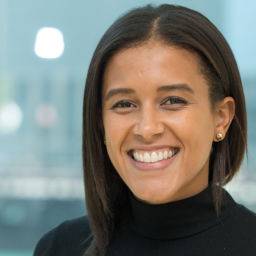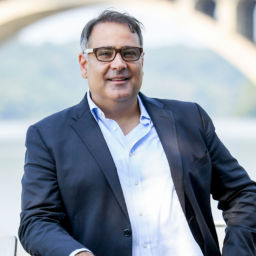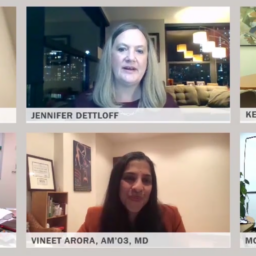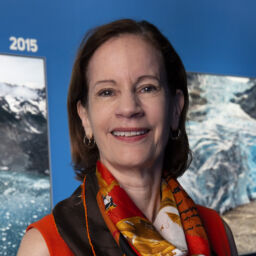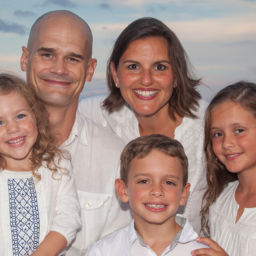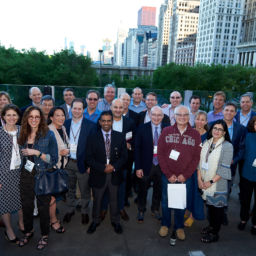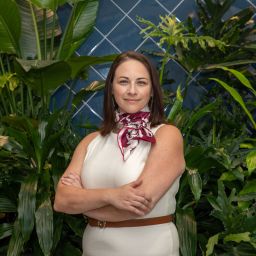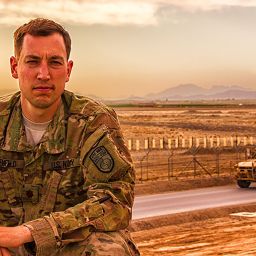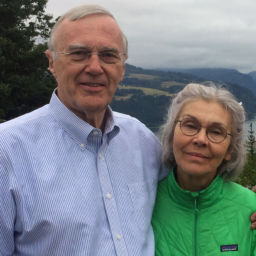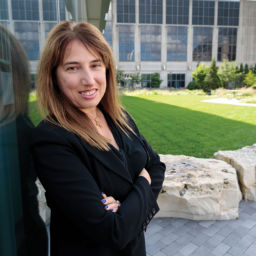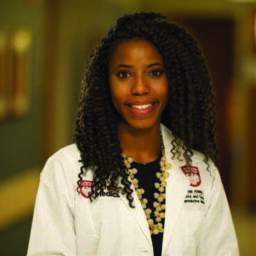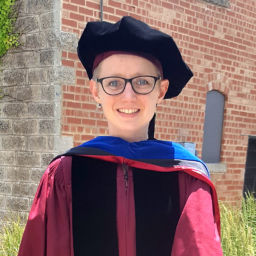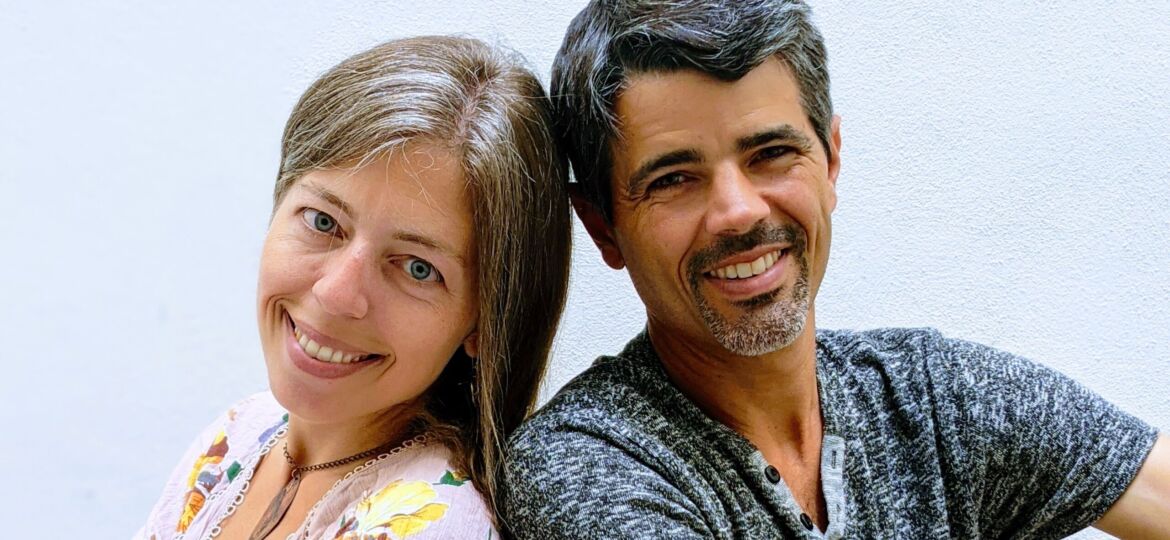
by Kate Dohner
Pilar Ortega, MD’06, is an emergency medicine physician and assistant professor at the University of Illinois at Chicago (UIC), where she teaches medical Spanish. Her husband, Joseph “Joey” Cooper, MD’06, is an associate professor of clinical psychiatry and director of psychiatry undergraduate medical education at UIC, College of Medicine. We spoke with them about the importance of patient-physician communication, how they navigate work-life balance, and more.
How did you meet, and what was your experience like at Pritzker?
Ortega: Joey and I met in college at Johns Hopkins University. We interviewed at Pritzker on the same day. One of the things that stands out about Pritzker is its commitment to training educators, which definitely resonated with us since being educators is a core part of our careers.
Cooper: We both connected with Pritzker’s “teacher-of-teachers” ethos. Pritzker provides a challenging environment where students are treated with respect and encouraged to be a full member of the team. I try to incorporate that into my own teaching—not just praising students for doing well but pushing them to rise to the next level.
Ortega: On one of my first days at Pritzker, I learned that we were not going to have a medical Spanish course because the faculty member who taught it was no longer there. Since I was born in Spain and raised in Miami, Florida, it has always been important to me to maintain strong English and Spanish skills both personally and professionally, and I saw this as an opportunity to develop a course. I created handouts, which eventually grew into my first book, Spanish and the Medical Interview.
How does language, and specifically language discordance, affect healthcare and your experiences in your respective fields?
Ortega: Research shows that 75 percent of the time, doctors can make a correct diagnosis based on language alone—just by taking a medical history, without a physical exam or lab tests. Think of all the patients with whom we cannot communicate or diagnose effectively because of language discordance.
While physicians obviously can’t speak all 350 languages spoken in the U.S., they can improve their facility with languages common in our population, which is why I’m committed to training clinicians in medical Spanish. This is especially important in emergency medicine, where situations are often urgent, and it’s critical to accurately understand what’s happening with the patient.
Cooper: As one of the few bilingual, Spanish-speaking psychiatrists in Chicago, I think it’s important for patients to be able to describe their thought processes and moods in the language they’re most comfortable with to avoid misinterpretations. When speaking to a patient in Spanish, it forces me to think about how to translate concepts to plain language without using medical jargon because my Spanish vocabulary is more colloquial. And that’s really the challenge in all of medicine—to use patient-centered language.
Could you tell me more about your work as mentors?
Ortega: It’s important for young people to be able to see someone like them in their field with whom they can connect. To that end, in 2017, I founded the Medical Organization for Latino Advancement (MOLA) to help Latinx people pursuing the health professions advance in their careers and build a community in which diversity and multilingualism are celebrated. We offer mentorship opportunities to students who may not otherwise have the chance to work with Latinx healthcare professionals.
Cooper: As a former residency program director, I’ve interviewed many prospective applicants and advised students on the process. In conversations with students, I emphasize the importance of showing your passion, which can be empowering for them. Finding your passion, displaying it, and energizing your work with it are important parts of a student’s growth into their professional identity.
How do you approach work-life balance?
Cooper: We’ve approached work-life balance in an evolving way over the course of our medical careers. We have four children, the first two of whom were born during residency. We each took time off, so that one of us was home with the kids when they were babies. We’re focused on making sure that we’re able to do what we want career-wise, while balancing that with time spent as a family.
Ortega: “Evolving” is the perfect word to describe our approach. It’s a sort of dance of priorities, and you have to be flexible. Children’s needs change as they grow, as do our own career goals, so you can’t necessarily plan too far ahead, and that’s okay. Our experience shows that it’s possible to achieve success in your personal and professional life, while also integrating your identity and values into your work.
This story originally appeared in Medicine on the Midway


